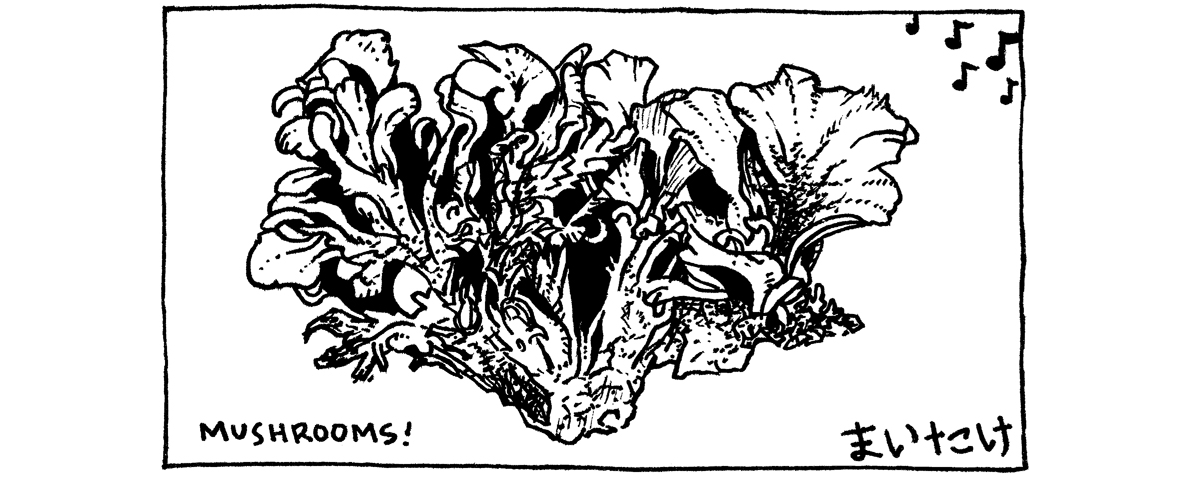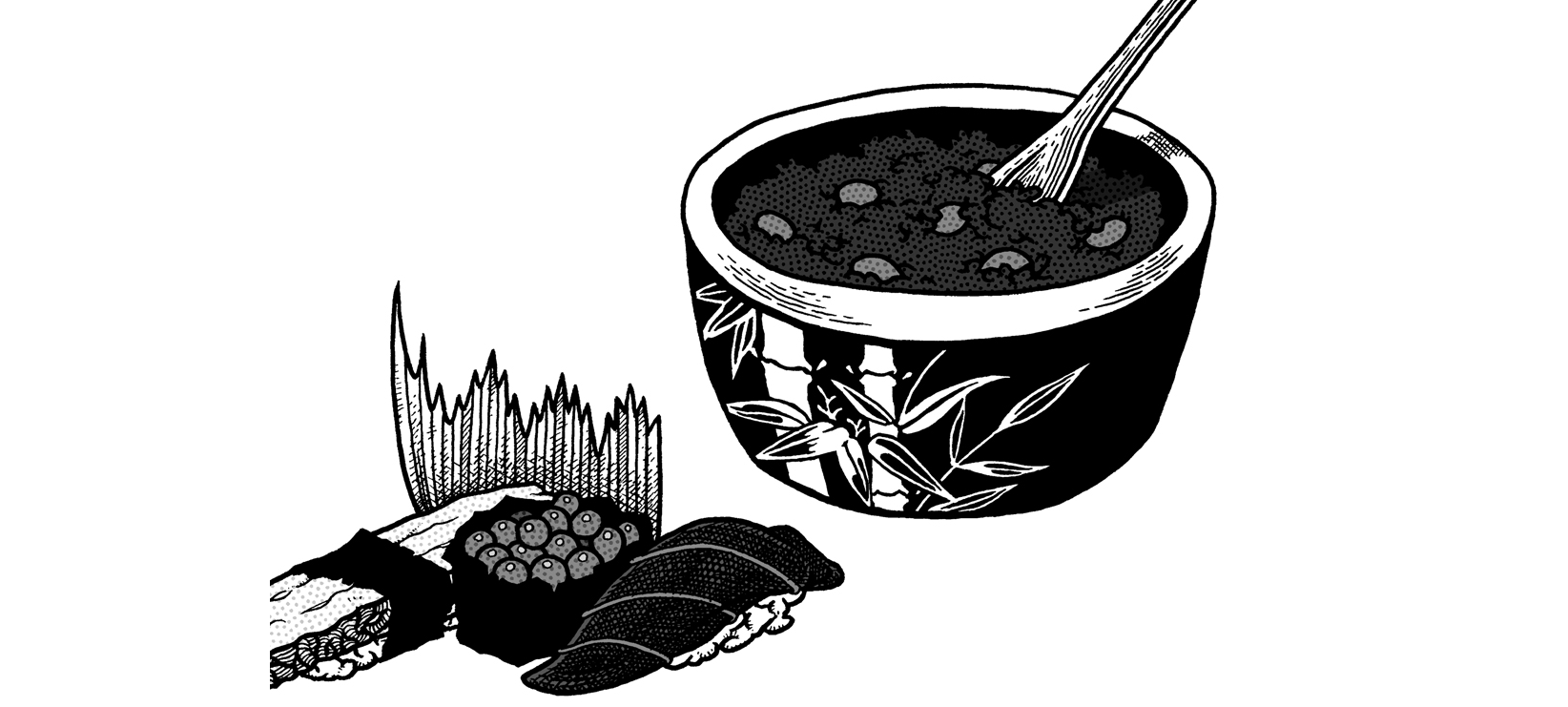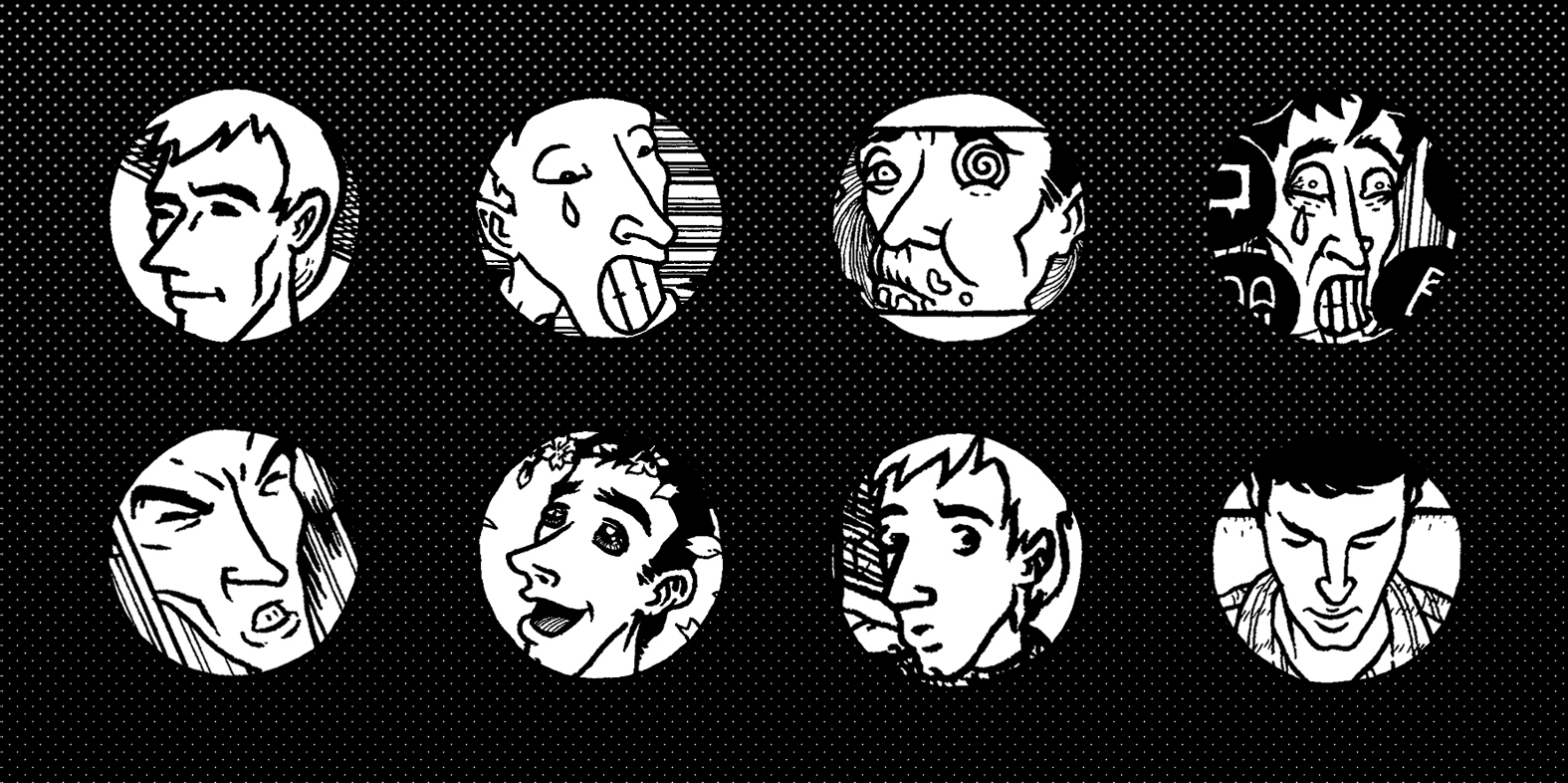An interview with online comics magazine Sequential Tart about Moresukine.
Sequential Tart: So what brought you from Germany to Tokyo, and how long do you think you'll be staying there?
Dirk Schwieger: Well, after I took my degree last summer in Berlin, there suddenly was this window of opportunity. I knew that I would be facing this transitional stage of Getting Serious, i.e., having to look for a daytime job and still trying to devote as much time as possible to my actual work as a comics artist.
At some point I realized that there was no reason to stay in Germany, and Tokyo was definitely on top of my list. So I thought: If I make it in the most expensive city in the world, hey, I'll make it anywhere! Which was kind of naive but strangely enough played out.

It was very appealing to me that Japan is this highly industrialized nation far, far away lacking the Judeo-Christian foundation of Western countries. Things are highly organized around here, but in a fundamentally different way. It's most unsettling and most refreshing to see that almost everything you take for granted in Europe or the States could just as well be done the other way around.
So, although I'll be staying for one whole year until this October, my feeling is that I will have barely scratched the surface when I leave here.

ST: What does "Moresukine" mean?
DS: All my blog entries are drawn into this little Moleskine Notebook, which is really the cliche of an artist's journal.
The Italian manufacturer based its design on an moleskin-covered notebook from France. The company claims that famous artists and writers such as Van Gogh and Hemingway have taken notes in it, but on a closer look it turns out to be a marketing hype, and most of these artists never really used it.
Don't get me wrong, it's a high quality notebook and I very much enjoy using it. But for me, it also stands for imitation and fake, and if you take away the negative connotations, these are keywords of Japanese culture. So I decided to use a Moleskine book for my Japan comic, and "Moresukine" is just the Japanese pronunciation of it. [...]

ST: What gave you the idea to have people give you "assignments," particularly with the addendum that you will do anything they ask, regardless of the risk to you?
DS: Well, it was important for me to forfeit authorship of this work. To not produce yet another "seminal" and precious artist book, but to disseminate it all over the internet, the "genius artist" behind it not being me but people from around the globe.
Generally my readers understand much more of what is going on in this country than I do, and I very much benefit from their comments and assignments.
And being remote-controlled was also a reference to Japanese game culture: me as a kind of flesh-and-bone avatar being navigated through the virtual reality of modern day Tokyo by my readers.

ST: Did you consider yourself an otaku and/or Japanese culture aficionado before you moved there? And how about now?
DS: The fact that Moresukine takes shape on the internet is very otaku, with all the virtual communication around it happening in digital neverwhere.
But when you hear about otaku in Europe, in most cases it's a synonym for "nerd" or "geek". In Japan, I have come to respect the otaku. There is of course an insular, sociopathological element to it, but to my surprise, I have met very communicative and sophisticated people who are proud to proclaim themselves otaku. I don't pretend to grasp it, but it seems to be about the adoration of a certain character while being fully aware that it just consists of penstrokes on paper — that it's just, for want of a better word, "fake". And about building a multimedial altar out of anime, manga, games, novels and internet pages for it.
So I am not an otaku, no. I just lack the degree of sophistication to be one.

In general, otaku-ness has of course become a mainstream culture and export industry that rivals the sales of Japanese car exports, for example. In this international sense, I definitely have become an aficionado of Japanese culture and pop culture. I guess on my next comic con back in Germany, the sparsely-clothed cosplayers will feel a lot more like home. [...]
ST: What comics do you like?
DS: Tales of the Beanworld, obviously. It would be very popular in Japan. I can only hope to approximate its level of excellency one day and create something equally profound and simultaneously entertaining, without the two compromising each other.
Dave Sim's experiments in storytelling, page layout, lettering and image/text combination are without par. In my view, his complex and insightful journeys into the outer rim of sanity — into alcoholism, religion or love — and of course Cerebus the hermaphrodite, make him the king of Shojo manga, although some may find this ironical. I'm absolutely thrilled to hear that he's working on new material. [...]

I am far from being a Manga expert, but I have discovered masterful artists as Yoshiharu Tsuge or Fumiko Takano. And I have my German heroes, like Fil or Wittek. [...]
ST: What travel tips and sightseeing recommendations do you have for a gaijin wanting to visit Japan?
DS: Whew, tough one. It very much depends on the respective focus of each visitor. Some feel more drawn to the millenia old culture, to tea ceremony, zen, kabuki. Others seek the trashy Japan of pachinko parlours, catfights and maid cafes. I think the best advice I can give is to peek beyond one's own expectations of Japan, to see the theme park representations of Japanese tradition in Kyoto, the venerable city of temples and shrines, and feel the sacredness inside Tokyo's immense department stores. My Japan experience centers around this unheard-of combination. [...]
– Abbreviations mine, questions by Wolven Moondaughter.

